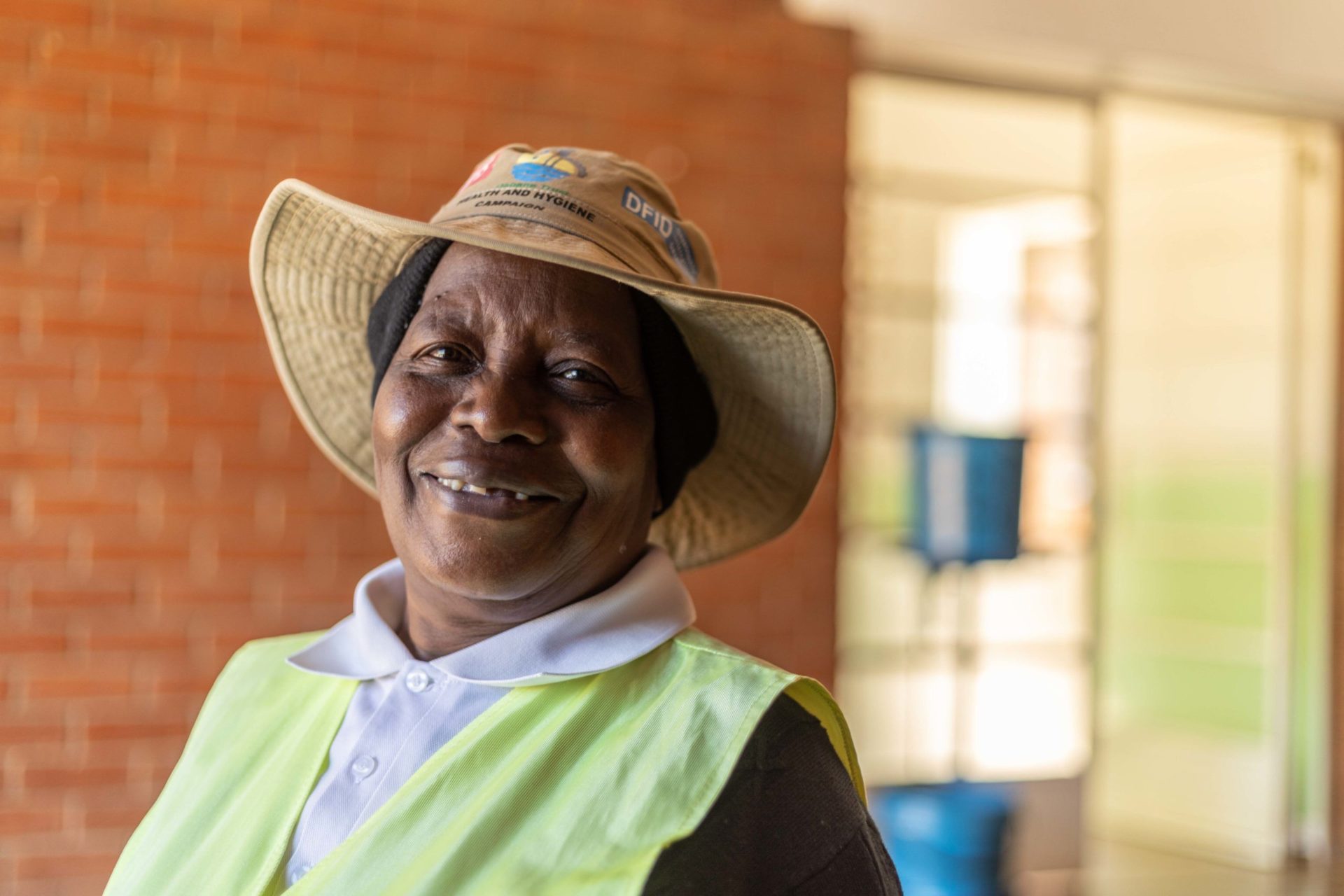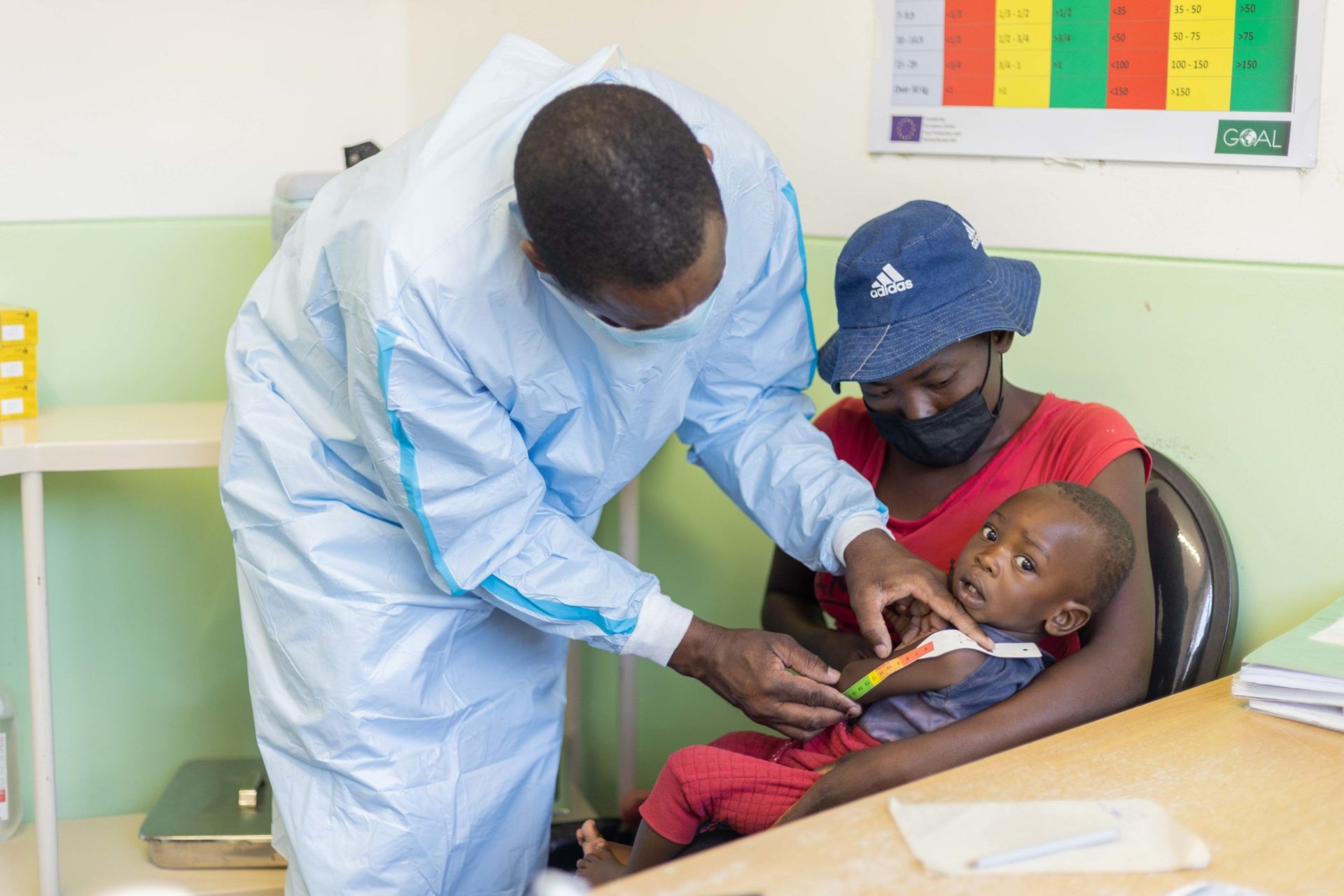 Stories
Stories
September 8, 2022 • 3 min read
A sense of fulfilment fills Phiri after her fifteen-month-old son, Wisdom, is checked by the health staff at Nkulumane Polyclinic in Bulawayo, Zimbabwe.
“The health of my child is my priority,” the 29-year-old single mother of one says, while her baby, is wrapped up in her arms. “That is why I came to the clinic for growth monitoring. His health situation was deteriorating.”
Deteriorating Health
Wisdom is Phiri’s only child. She became worried when he fell ill in November last year – he was losing weight and had no appetite. Phiri tried to give him porridge with peanut butter, but he did not gain weight. “People could not look at him twice, he looked so unwell. I cried when I was looking at my baby,” Phiri says.
Phiri went to her nearest health centre, and was then referred to Nkulumane Polyclinic, where Wisdom is currently receiving treatment for malnutrition. “Wisdom came here some time ago weighing 5.6 kilograms – the target weight was 8 kilograms,” says Davie Moyo, a General Nurse responsible for immunisation and nutrition of children at Nkulumane Polyclinic. “Fortunately, he did not have any other underlying conditions, which meant that we could start treating him right away.”
After assessing his needs, staff gave Wisdom a daily portion of plumpy nut, a peanut-based paste, to immediately improve his health.
The LINKAGES Programme
The clinic is supported by GOAL’s LINKAGES programme, which is funded by the European Union Humanitarian Aid. The programme aims to improve child nutrition in vulnerable households in the cities of Harare and Bulawayo.
LINKAGES provides training and capacity-building on the identification and treatment of severe malnutrition in children under the age of five. Nurses at Nkulumane Polyclinic and community health workers are now receiving invaluable support to serve the local community.

Elizabeth Chipata, 65, a community health worker Nkulumane suburb, Bulawayo.
Poverty leading to malnutrition in Zimbabwe
Elizabeth Chipata, 65, a community health worker supported by the programme, has come across some families so poverty-stricken that they cannot afford two meals a day.
“Children in this community are suffering from malnutrition due to poverty. Some families cannot afford to buy the variety of foods that we recommend to feed their babies. Some mothers have many children to look after, yet they are unemployed amid the economic crisis,” she says.
Chipata conducts home visits, distributing mid-upper arm circumference (MUAC) tape to mothers. She also provides training, to help mothers identify the early signs of malnutrition at home.
Financial Assistance a Lifeline
To support families and prevent child malnutrition, GOAL teams are also providing cash based-transfers. The scheme ensures families can afford to buy healthy, nutritious food in times of economic hardship.

General Nurse, Davie Moyo takes a MUAC measurement on Phiri’s child, Wisdom, at Nkulumane Clinic
Phiri collected her cash transfer from the local bank. “I did not have any money to buy food and meet the needs of my baby,” Phiri recalls. “Also, during the peak of Covid-19, I could only afford to have one meal a day. With the cash transfer, I bought potatoes and vegetables to supplement Wisdom’s treatment,” she says.
Moyo says the cash-based transfer support is critical in this approach to malnutrition treatment and identification. “Many families were defaulting but now our defaulter rate is low because mothers come back for check-ups and get updates on their money. The cash-based transfer also ensures that the family has something else to eat and they do not have to turn to the therapeutic food for the child,” he says.
Phiri’s baby Wisdom has improved and is now weighing 7.3kgs. He is on his way to his target of 8kg, and a healthy and happy childhood.
